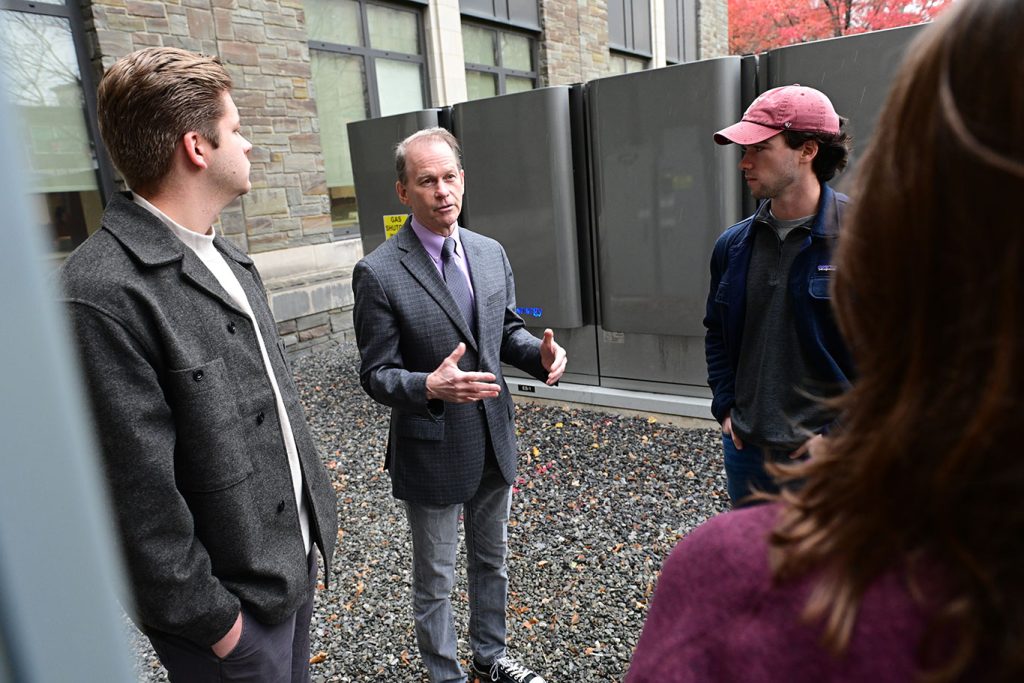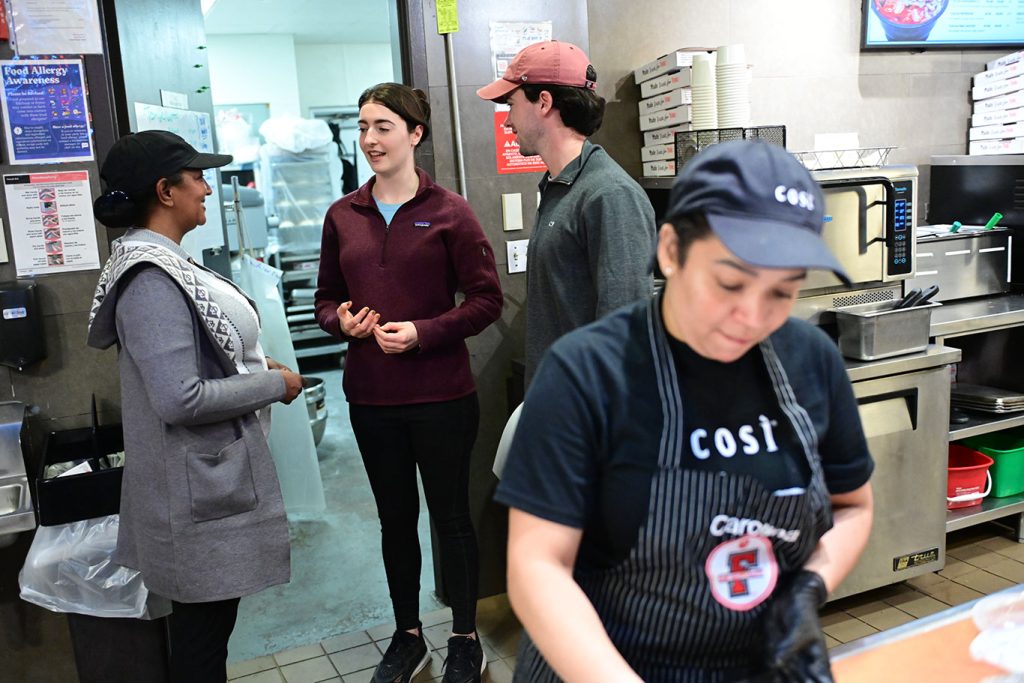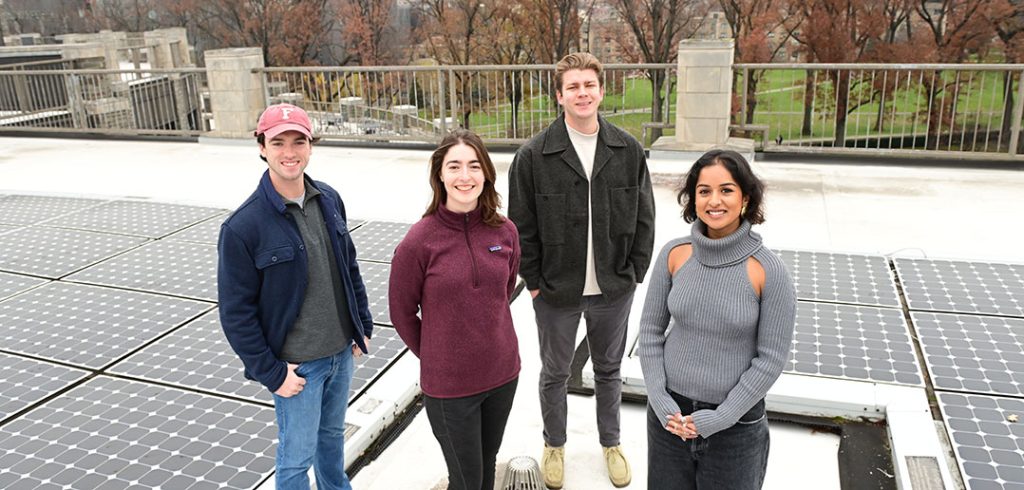This fall, some of them have turned their attention to Fordham’s campuses.
In September, the Department of Facilities Management invited four students to intern with them on projects geared toward lowering Fordham’s carbon footprint: Fordham College at Rose Hill seniors Ethan Shepard, Sean Power, and Amy Rini, and Gabelli School of Business junior Bhavika Yendapalli.
Vincent Burke, Fordham’s director of sustainability, said the goal is to provide students with practical skills for sustainability-related careers and help the department tackle challenges, such as reducing CO₂ emissions from campus facilities by 40% by 2030 and 80% by 2050.
“These students are helping us shape an internship program that we hope to expand in the years to come,” Burke said.
Data Collection, with Help from a $50K Grant from Con Ed
The students are collecting data necessary for Fordham to join STARS, a self-reporting framework for universities to measure their sustainability performance. Shepard, an environmental studies major, and Power, a sociology major, are collecting data on energy usage. Rini, a theology major and economics minor, is examining food waste, and Yendapalli, a marketing major, is focused on Fordham’s curriculum.
In November, the department received a $50,000 grant from Con Edison that will fund software that streamlines all the data collected.
In addition, each student is researching potential projects, such as an anaerobic digestor that transforms food waste into fuel and a rain garden that will mitigate flooding on campus.

From Calvin Klein and Tiffany to the NYC Power Grid
Yendapalli has interned with teams focused on sustainability at Calvin Klein and Tiffany & Co. But this internship has introduced her to a different side of the field.
“I’ve been learning an immense amount about how energy systems work… and how these renewable energy sources that we’re going to install will benefit not only Fordham but the community,” she said.
Rini, who is also president of Fordham’s Social Innovation Collaboratory’s Climate Impact Team, sees the internship as an expression of the intersection of the faith and environmentalism that Pope Francis called for in his 2015 encyclical Laudato Si’.
“It’s something that all of us really need to care about, theologically in our relationship with God and spiritually, but also just as good people who are living on the Earth who understand that our actions have consequences,” she said.

A Positive Impact Through Business
Shepherd sees sustainability as a growing career field. His recent internship with Estée Lauder reaffirmed his belief that he can have a positive impact through business.
Like Yendapalli, he’s enjoyed learning about projects like the replacement of steam boilers at Martyr’s Court.
“I didn’t know how many engineering groups or consultants Fordham is partnering with to work on projects like installing fuel cells,” he said.
Power, who serves as vice president of the Student Government’s sustainability committee, didn’t plan to pursue sustainability when he came to Fordham, but he was swayed by classes such as Anthropology of Food.
He’s learning new things through the STARS data collection project, especially in working alongside Burke and Nelida LaBate, the office’s grant proposal and funding manager.
“Vinny [Burke] says all the time, we’ll figure it out as we’re working alongside them. It’s still very foreign, but I’m learning.”
Burke said the students’ input is invaluable.
“The level of maturity, intelligence, and insight from them is amazing,” he said.
“They don’t get terribly hung up on one particular topic; they just want to see what the grand vision is and what steps are necessary to get there.”


